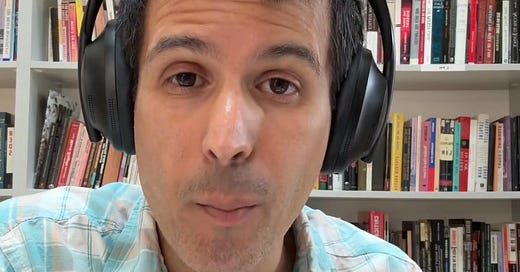Half a million people will soon lose their legal permission to live and work in the United States thanks to a one-paragraph order from the U.S. Supreme Court. The majority of justices allowed the Trump administration to move forward with its plans to strip citizens of Cuba, Haiti, Nicaragua, and Venezuela of parole.
Today’s decision comes roughly six weeks after a federal judge in Boston blocked the Department of Homeland Security from reversing the Biden administration’s special parole initiative for citizens of these countries. Through the CHNV process, migrants granted parole are authorized to live in the United States. They could separately apply for permission to work.
Trump’s Secretary of Homeland Security, Kristi Noem, announced plans to end the CHNV parole process on March 25, 2025. A group of migrants who were granted CHNV parole quickly sued. Judge Indira Talwani sided with the migrants. DHS can’t strip migrants of parole en masse, the judge concluded. The federal government appealed Judge Talwani’s decision to the U.S. Court of Appeals for the First Circuit where the case remains pending.
The Supreme Court’s decision to permit DHS to revoke parole is significant in large part because the legal question at the center of the lawsuit remains unsettled: can DHS end parole for a large group without reviewing each file individually? The justices in the majority today did not address this question, but their decision to let the administration move forward with its plans suggests that they are inclined to agree with Trump’s team.
Since each of the people directly affected by today’s decision has submitted requests for parole and employment authorization to the federal government, the Immigration and Customs Enforcement agency will not have much difficulty locating and detaining them. Some of these individuals are likely to request asylum or raise another legal claim to avoid removal.
Once ICE has taken custody of people who suddenly lack legal permission to live in the United States, agents are likely to move quickly to deport as many as possible. They will inevitably be slowed by the fact that Cuba, Nicaragua, and Venezuela accept very few deportations from the United States. ICE will have to turn to third countries to remove any substantial number of people who stand to lose their legal authorization from today’s order.
Today’s decision is distinct from last week’s order in which the Supreme Court allowed DHS to revoke Temporary Protected Status from roughly 350,000 Venezuelans. Like parole, TPS provides legal permission to live and work in the United States.
Both the Court’s decision siding with the Trump administration over TPS and parole reached the justices on a fast track called the emergency docket. Instead of the usual appeals process where parties fully develop their arguments before lower courts, the emergency docket is typically reserved for issues that require immediate attention to avoid harm that can’t be fixed.
Policy disputes haven’t usually fit the emergency docket’s narrow criteria, but the Trump administration has come to rely on it extensively in its first four months. In addition to TPS and parole, the birthright citizenship and Alien Enemies Act cases also reached the Supreme Court on the emergency docket. Dissenting today, Justice Jackson, joined by Justice Sotomayor, described the Court’s assessment of the urgency of weighing on this matter while it remains pending in the First Circuit as “plainly botched.”











Share this post